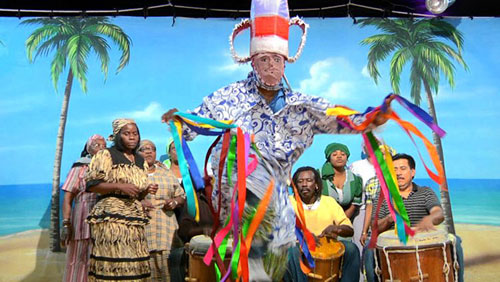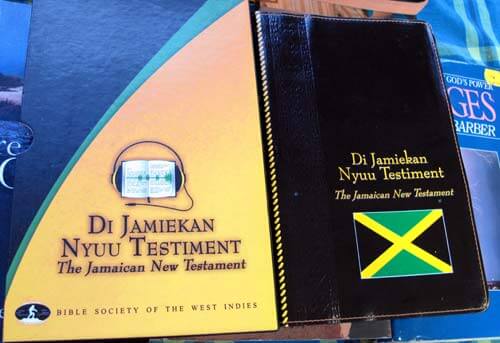Trinidad and Tobago, Jamaica, Haiti, Curacao, and Honduras are some film settings that make up the 18-day New York African Diaspora International Film Festival (ADIFF), which runs until Dec. 11, 2012. Among its 54 films from 35 countries, the Festival, as usual, has intriguing highlights.
This year’s Centerpiece film, screening at 5:00 p.m. on Dec. 1, at Teachers College-Cowin Center, is the New York premiere of “Toussaint Louverture” with Jimmy Jean-Louis portraying the lead. The made-for-French TV production, two 90-minute films shown sequentially, depicts the life of the Haitian leader who led the first successful slave revolt in world history.
Known for his military genius and political acumen, L’ Ouverture defeated Napoleon, won independence from France, and established Haiti as the first Black free nation. The film’s producers will be present for the Q&A that follows the screenings.
Sunday, Dec. 2, at Teacher’s College, an evening entitled “Garifuna Heritage Celebration” will feature a screening at 5pm of the 2012 film, “Garifuna in Peril.”
The Garifuna are a people also known as the Black Caribs, brought from Africa but never enslaved, first settling in St. Vincent and intermarrying with the Native Americans, later exiled to Honduras.
The film is the first feature with the majority of dialogue in Arawak-based Garifuna, deemed an endangered language by UNESCO. It is the story of a Garifuna language teacher struggling to preserve Afro-Amerindian culture by building a language school in his home village in Honduras. Following the film, the Garifuna cultural night will feature the New York City Garifuna Dance Ensemble. The Afro-Garifuna Jazz Ensemble is one of the sponsors of the evening.
Yearly, the Festival spotlights a country or theme. This year, the spotlight is on Namibia–an independent country since 1990. Tuesday, Dec. 4 at 7:00 p.m. at Teachers College, the Festival will screen the U.S. Premiere of four short films by up and coming filmmakers from this young independent country. There will be a reception following the Q&A with the filmmakers.
Two decades ago, ADIFF Director Reinaldo B. Spech began the Festival, recognizing the marginal role international Black communities play in the art of cinema. “Many creative and visionary films lay languid, collecting dust without the light of a screening due to the lack of distribution structures,” he says.
Documentary, animation, shorts and feature length films– originating in Africa, the Caribbean, Europe, Latin America, and the U.S.– make up this year’s Festival that continues to provide a platform for previously ignored films.
In years past, screening venues were utilized up and downtown Manhattan, but this year, the African Diaspora International Film Festival has almost completely moved to the Upper West Side of Manhattan and Harlem. For a selection of films, Black Spectrum theater in Jamaica, Queens has been added as a new venue.
Co-director of the Festival Diarah N’Daw-Spech says of this year’s milestone, “Our proudest achievement, when we look at 20 years of work, is that of knowing that we brought so many great films to the U.S. audiences that would never have been seen otherwise,” adding, “films like ‘Kirikou and the Sorceress’, ‘Congo, White King, Red Rubber’, ‘Black Death’, and many more.”
The Festival closes the afternoon of Dec. 9 with a screening of the winner of the Public Award for the best film directed by a woman of color. For more Festival information: www.ADIFF.org.

























